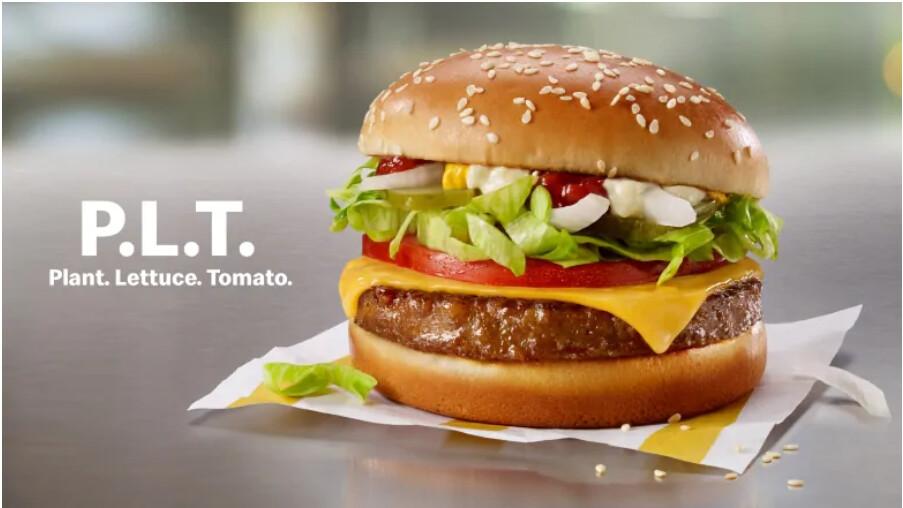McDonald’s six-month trial of a plant-based burger has not resulted in the burger being added to its menu, and information about it has been removed from the company’s website.
The burger, called P.L.T. (plant, lettuce, tomato), was tested in two consecutive trials from September 2019 to April 2020 at 28 McDonald’s restaurants in southwestern Ontario.





